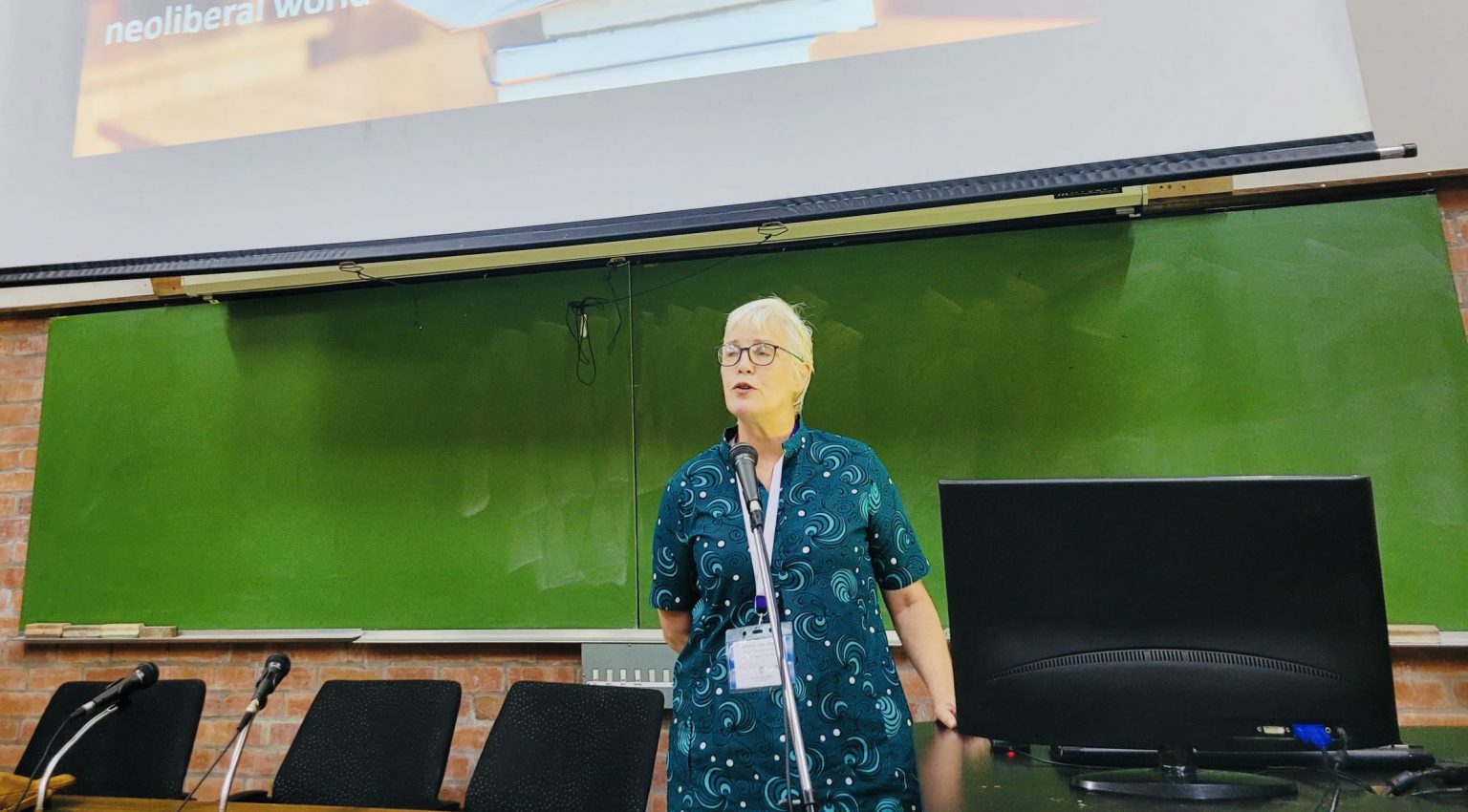By Ropafadzo Madziva and Gremma Matiwa
The Journalism Summit, held by Rhodes University School of Journalism and Media Studies on 4 April, highlighted the revolutionary changes and the role that journalism education has played over the past 30 years.
“Our role is to nurture critical citizens of the world,” said Rhodes University lecturer Prof Sioux McKenna as she began the analysis of the university as a neoliberal institution and the implications for the critical education of professionals.
McKenna further elaborated on how universities impact the economic value of the country and how human activity is viewed through the lens of economic value. She was critical of the misconception that graduate unemployment is as high as that of unqualified peers.
Speaking to Grocott’s Mail, McKenna added that future journalists should be exposed to journalism education by having more knowledge on tackling information to prove credibility.
Prof Herman Wasserman, from the University of Stellenbosch, stated that journalists should not be gatekeepers but rather truth seekers and should reflect on themselves and find out what they really want to do.
Wasserman also highlighted the lack of representation of indigenous languages in media. He emphasised how languages such as isiXhosa and isiZulu, are marginalised in the world of journalism, and he encourages Africans to make use of indigenous languages proudly in the media.
Another guest speaker, Prof Abiodun Salawu, from North-West University, said indigenous languages can only be made to be used in the media if Africans can educate the young generations more about them and that “reform and revolutionary is no longer depending on us” but that we make use of old ways as they are the best in all ways.
In closing, a memorial walk with members of civil society was held to honour and remember journalists who faced and continue to face harassment, imprisonment and death as a result of uncovering and exposing the truth.


